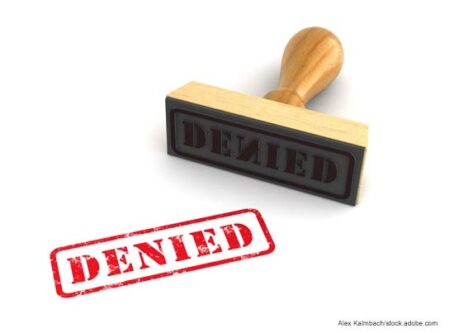Government loses witnesses in truckers transporting aliens case
A trucker who was found guilty of transporting aliens for commercial advantage or private financial gain across the U.S. border had his conviction overturned by an appellate court. The overturned judgment was the result of U.S. government officials losing two key witnesses who identified the driver.
On Dec. 12, the Fifth Circuit Court of Appeals in Texas vacated the judgment from a lower court that found George Lamar Darryl Foster guilty of transporting aliens, Mexican immigrants, across the southern border in Texas. Two of the undocumented aliens who had submitted a video deposition could not be located for trial, allowing the defense to evoke the Confrontation Clause of the Sixth Amendment.
Arrest in Sierra Blanca
At around midnight on July 7, 2016, Foster attempted to cross the Sierra Blanca checkpoint while driving a tractor-trailer pulling a reefer unit. During the routine stop, Border Patrol agents discovered six people in the refrigerated trailer, including five people attempting to enter the country without documentation. Foster was indicted on two counts for transporting aliens for financial gain.
Approximately two weeks later, two of the detainees, Jose Manuel Francisco-Maldonado and Leandro Hernandez-Ruiz, provided video depositions to the government. During the depositions, Francisco-Maldonado and Hernandez-Ruiz identified Foster as the driver of the truck transporting aliens.
The two witnesses were informed that they may be needed for trial, in which case the government would allow them to re-enter the United States with all travel expenses paid. Hernandez-Ruiz gave officials a home address and phone number, both in Mexico. Francisco-Maldonado provided his home address in Mexico and an email address. In exchange for their cooperation, all charges were dropped against them.
Government loses key witnesses
A week before trial in February 2017, prosecutors filed a motion to allow the video deposition in trial since neither of the witnesses were available. For the previous four months before the trial, the agent responsible for keeping track of the witnesses could not locate either one. Hernandez-Ruiz was called six times, Francisco-Maldonado was emailed four times, letters were sent to both home addresses, and attempts were made to reach out to the Mexican government and the witnesses’ attorney. However, documentation of these attempts were never filed.
During the trial, Foster motioned to have the video deposition excluded, arguing it violates his Sixth Amendment right to confront a witness in a criminal trial. Despite no records backing the government’s claims of attempting to contact the witnesses, the district court denied the Foster’s motion.
A Border Patrol agent who interviewed Foster after the arrest testified that Foster initially denied any knowledge of the immigrants in his trailer. Foster reversed his statement and confessed with a written statement to transporting them for money. However, during testimony, Foster went back to his original claim of lack of knowledge and claimed he was threatened and coerced by investigators to submit the written statement.
A jury found Foster guilty of transporting aliens and sentenced him to 57 months of imprisonment and two years of supervised release. Foster appealed the decision on the grounds his Sixth Amendment rights were violated.
Confrontation clause and ‘good-faith effort’
In its published opinion, the appellate court cited a Supreme Court case that explained the Confrontation Clause of the Sixth Amendment:
“A personal examination and cross examination of the witness, in which the accused has an opportunity, not only of testing the recollection and sifting the conscience of the witness, but of compelling him to stand face to face with the jury in order that they may look at him and judge by his demeanor upon the stand and the manner in which he gives his testimony whether he is worthy of belief.”
This right can be waived if the government can demonstrate the unavailability of the witnesses. The heart of the appellate case was whether or not the government demonstrated that Francisco-Maldonado and Hernandez-Ruiz were unavailable. Essentially, it comes down to whether or not a “good-faith effort” had been made. The appellate panel concluded that was not the case.
“The government made no attempt to verify or confirm the authenticity or workability of the witnesses’ contact information, make any attempt to obtain additional collateral contact information, or offer the option of remaining in the United States pending Foster’s trial,” the court opined. “Instead, the government merely informed Hernandez-Ruiz and Francisco-Maldonado that their testimony might be needed if Foster’s case went to trial and that it would take care of travel arrangements if that turned out to be the case.”
Emphasizing its point, the appellate court also pointed out “there is not a shred of evidence documenting these measures.”
Consequently, the appellate court vacated the district court’s judgment and ordered that Foster receive a new trial.









